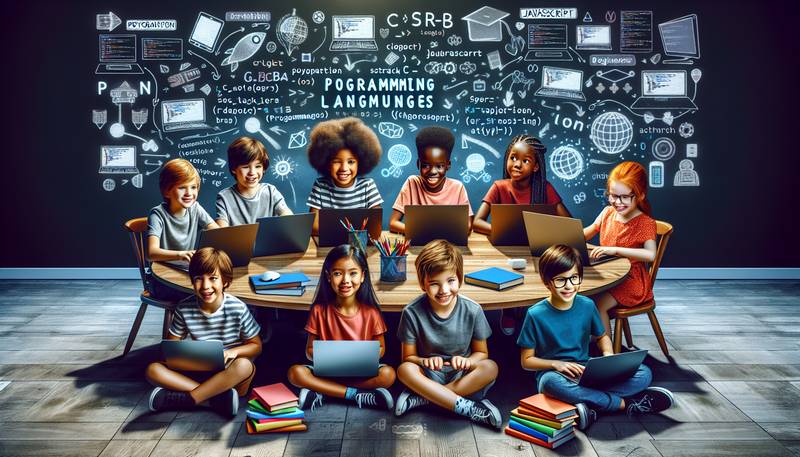Coding for Kids: Preparing the Next Generation for a Digital World

As we move further into the 21st century, it's becoming more and more apparent that coding is a skill that is becoming as fundamental as reading and writing. In a world that is increasingly digital, code is the language that is used to build and interact with the tools and devices that shape our daily lives. It's no longer enough to just be a consumer of technology; to truly thrive in today's society, children need to be creators of it. And that's where coding for kids comes in.
The Importance of Coding for Kids
Coding is not just for computer programmers and software engineers. It's a skill that is valuable in virtually every industry. From healthcare to finance to entertainment, coding is used to solve problems and create new products and services. By teaching children to code, we're preparing them for a future where they can be the innovators and leaders in whatever field they choose to pursue.
But coding for kids is not just about preparing them for the workforce. It's also about empowering them to be confident and creative thinkers. Coding teaches children problem-solving skills, critical thinking, and perseverance. It also encourages them to be curious and to ask questions about how things work. These are skills that will serve them well in all areas of their lives, not just in their careers.
How to Get Kids Started with Coding
So how do you get kids interested in coding? The key is to make it fun and engaging. There are a wealth of resources available to parents and educators that can help kids learn to code in a way that's enjoyable and accessible. From coding games to online courses to robotics kits, there's something out there for every child's interests and skill level.
One of the best ways to get kids started with coding is to introduce them to visual programming languages like Scratch or Blockly. These languages use blocks of code that snap together like puzzle pieces, making it easy for kids to see the logic behind their code and experiment with different combinations. Once they've mastered the basics with a visual language, they can move on to more complex text-based languages like Python or JavaScript.
The Benefits of Coding for Kids
The benefits of coding for kids are numerous. In addition to the problem-solving and critical thinking skills mentioned earlier, coding also teaches children how to work in teams and collaborate with others. Coding projects often require multiple people to work together to achieve a common goal, and this teaches children how to communicate effectively and work as part of a team.
Coding also helps children develop a growth mindset. Learning to code can be challenging, and there will be times when kids get frustrated or make mistakes. But by pushing through these challenges and learning from their mistakes, kids develop a mindset that values effort and sees failure as an opportunity to learn and grow.
The Future of Coding for Kids
The future of coding for kids is bright. As technology continues to advance, the demand for skilled coders will only increase. And as coding becomes more integrated into the curriculum, children will have more opportunities to learn and develop their skills. We're already seeing the impact of coding for kids in the form of innovative projects and products created by young people all over the world.
But the future of coding for kids is not just about creating the next generation of coders. It's also about ensuring that all children have the opportunity to learn this valuable skill, regardless of their background or socioeconomic status. By making coding accessible to all children, we can create a more diverse and inclusive technology industry and help close the digital divide.
In Conclusion
Coding for kids is not just a trend; it's a necessity. In a world that is increasingly reliant on technology, coding is a skill that will give children the ability to shape the future. By teaching kids to code, we're not just preparing them for the workforce; we're empowering them to be confident, creative, and critical thinkers who can tackle the challenges of the digital world. So let's give our kids the tools they need to succeed, and watch as they create, innovate, and change the world.


